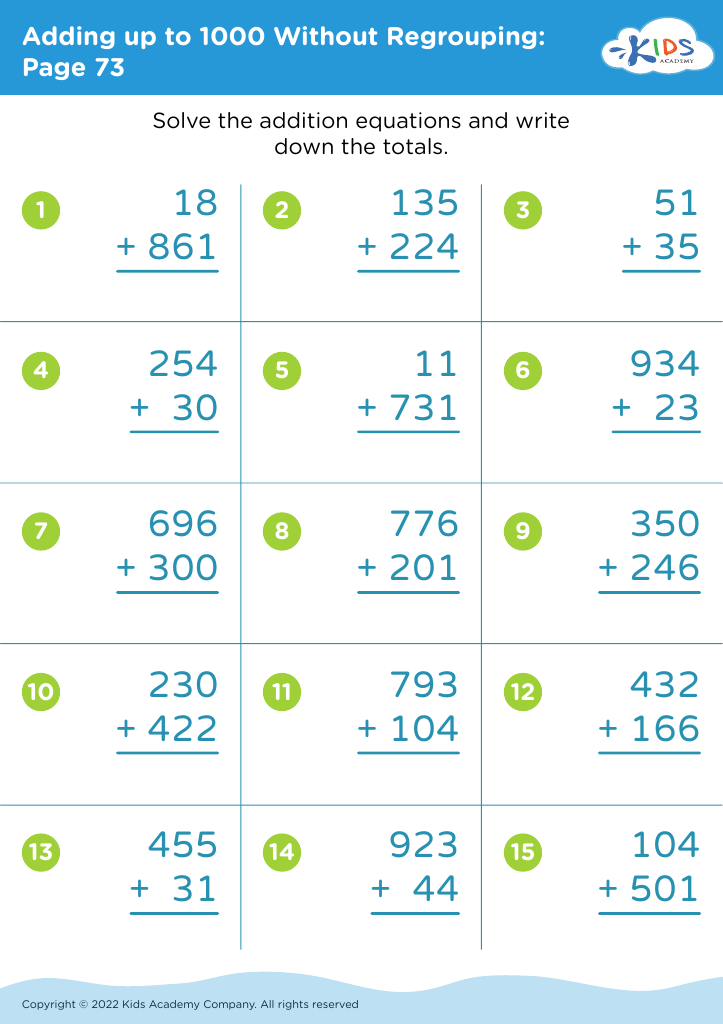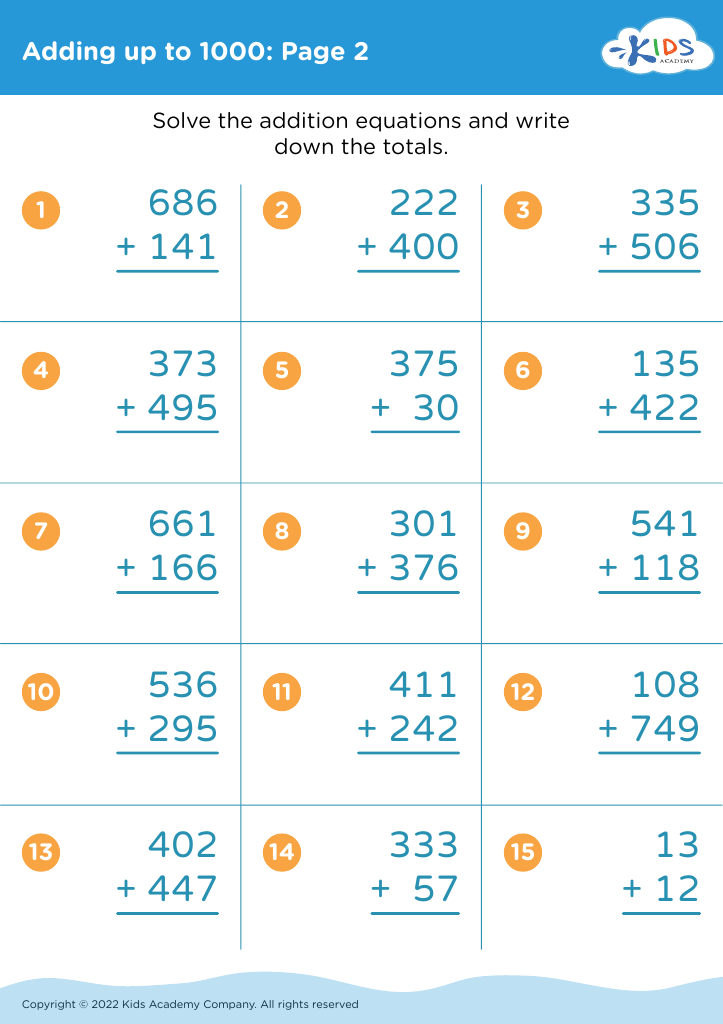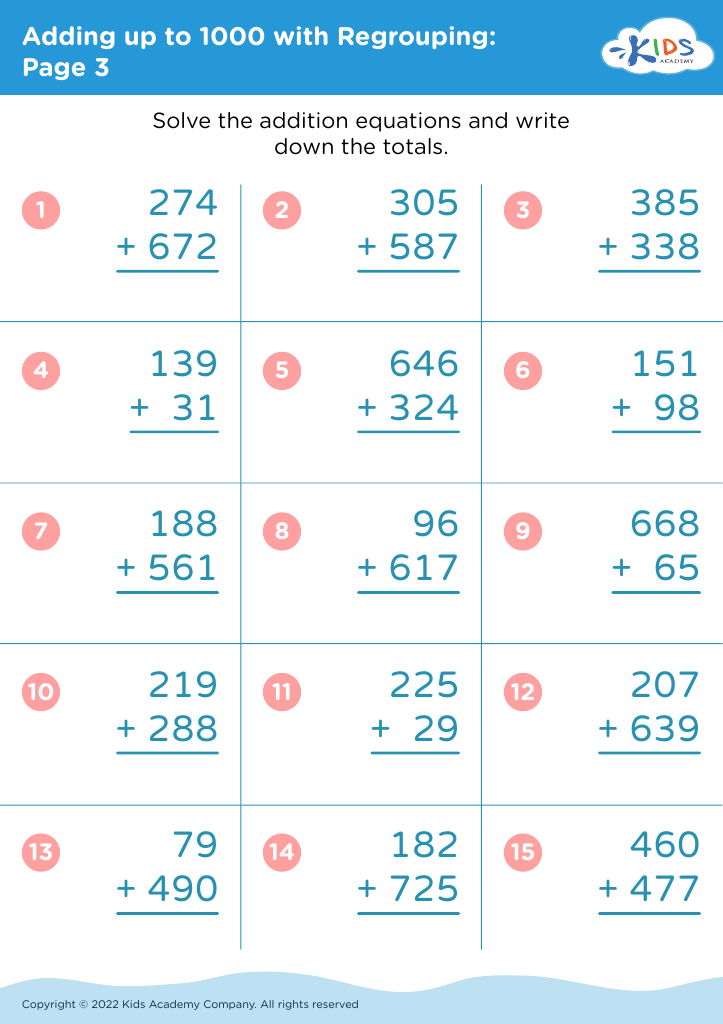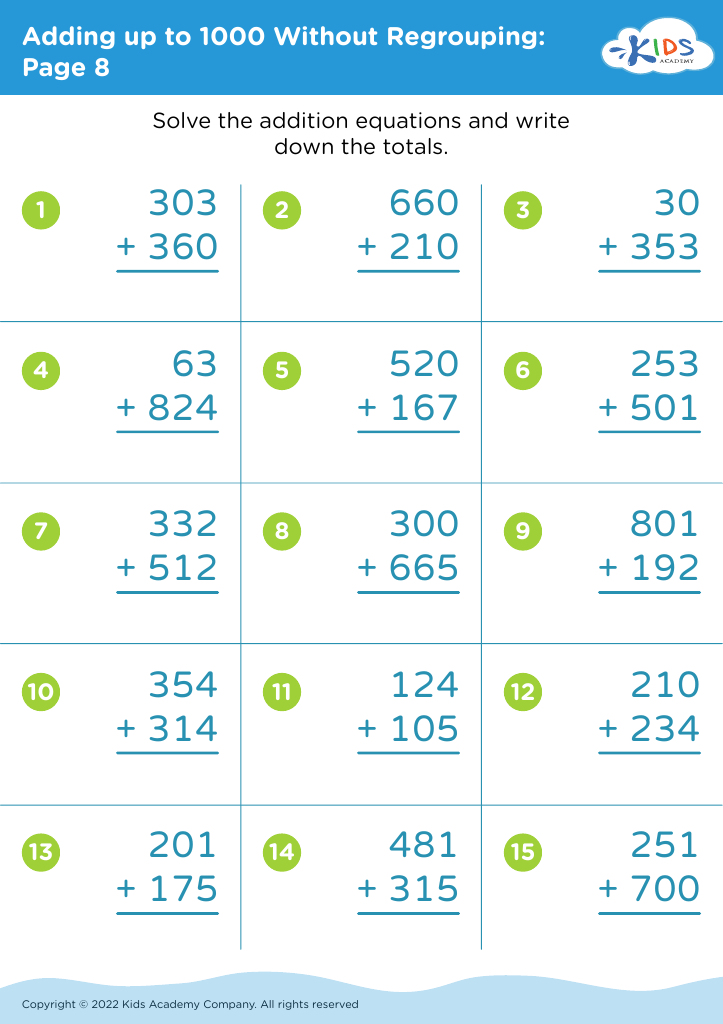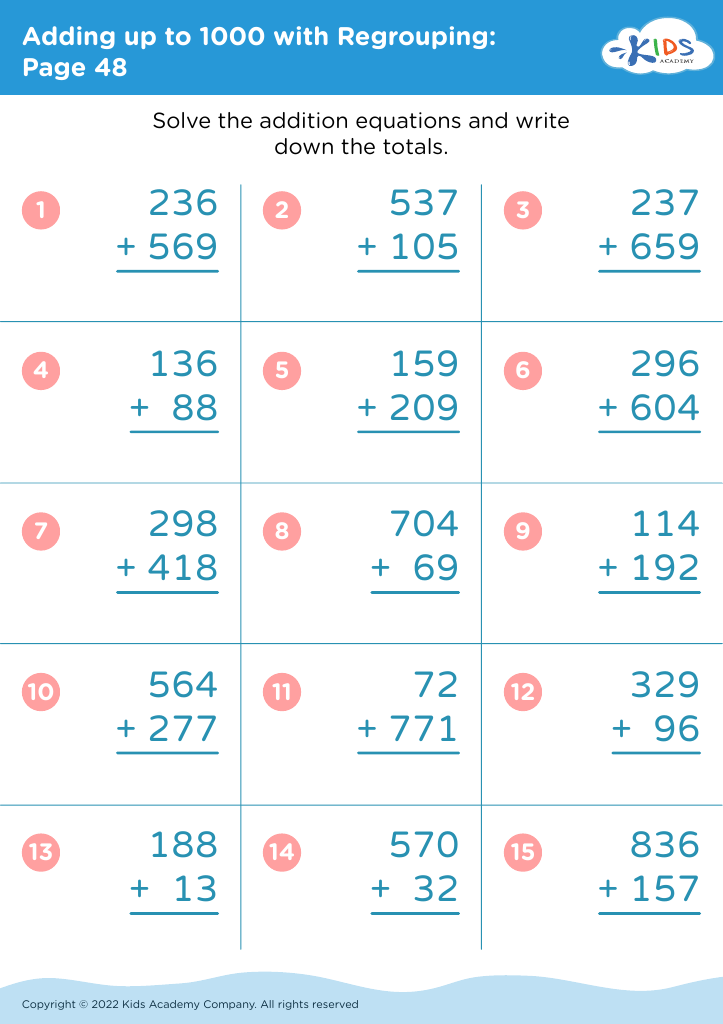Enhance comprehension Adding up to 1000 Worksheets for Ages 5-7
7 filtered results
-
From - To
Boost your child's math skills with our "Enhance Comprehension Adding up to 1000 Worksheets" tailored for ages 5-7. Our expertly crafted worksheets guide young learners through addition problems up to 1000, building a solid foundation in mathematics. These activities promote logical thinking and problem-solving, ensuring a deeper grasp of addition concepts. Designed to be engaging and educational, each worksheet aligns with early elementary math standards, making learning both fun and effective. Help your child excel in math and develop critical thinking skills with our comprehensive, age-appropriate worksheets. Start their journey to math mastery today!
Enhancing comprehension for mathematical concepts, particularly addition up to 1000, is crucial for children aged 5-7 as it forms the foundational cornerstone of their future learning. At this age, young minds are highly adaptable and primed for developing critical thinking and problem-solving skills. Strengthening their grasp of addition helps them understand the relationships between numbers, boosts their confidence in handling larger figures, and fosters a positive attitude towards mathematics.
Furthermore, robust comprehension in addition aids in everyday activities and practical situations, such as counting money, measuring ingredients, and understanding distances. Teachers and parents play a pivotal role in facilitating this growth by providing supportive and engaging learning environments that encourage exploration and persistence.
By integrating addition up to 1000 in a holistic manner, through games, visual aids, and hands-on activities, educators and parents can ensure that children see learning as a fun, interactive, and meaningful experience, rather than a daunting task. This early intervention will not only contribute to their mathematical proficiency but also improve overall academic performance, cognitive development, and lifelong learning skills. Ultimately, investing in strong foundational math skills during these formative years lays the groundwork for future academic and real-world success.
